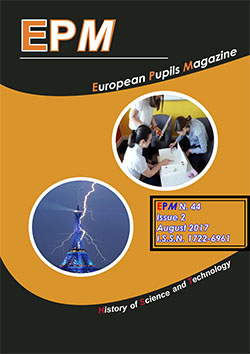Math Science Chemistry Economics Biology News Search
But Russell’s paradox came opposite to this idea. Russell’s paradox is similar to what Evoulidis’ paradox, he stated: Now I am lying to you! If he is lying, he is actually telling the truth, but if he is telling the truth, he is actually lying… Russell said that if there is a total which contain all the totals, then this total should contain itself which contain all the totals, which should contain itself…
On the other hand, another important issue is the language of science and about this issue Philosopher Wittgenstein believed that there are not paradoxes; there is just the wrong use of language… He also believed that there are not any Philosophical questions and this idea was confirmed that was wrong at a dispute with the subject: Are there any philosophical questions? which took place in 1956 and Popper was opposite to Wittgenstein. This is the most famous dispute of all due to the strong dissent. In addition, Wittgenstein was holding a torch against to Popper.
Gödel’s incompleteness theorem
Kurt Gödel was a young full-of-life Mathematician and he was preparing his postgraduate studies when a phrase started stabilizing in his mind: There is no ignorabimus in Mathematics… On the other hand Russell’s paradox had disturbed the whole Mathematical Society. Gödel finally confirmed that every system is incomplete. In other words, there are problems without a solution and we can not know if a problem has a solution or not. In Philosophy and every day life this incompleteness means that we can not control everything and sometimes there is not a perfect solution to our problems, so choose what you thing is the best solution, because chaos is in our lives.
Nowadays, Hilary Putnam states:
When philosophy discovers something wrong with science, sometimes science has to be changed — Russell's paradox comes to mind, as does Berkeley's attack on the actual infinitesimal — but more often it is philosophy that has to be changed. I do not think that the difficulties that philosophy finds with classical mathematics today are genuine difficulties; and I think that the philosophical interpretations of mathematics that we are being offered on every hand are wrong, and that philosophical interpretation is just what mathematics doesn't need. (Putnam, 169-170)
In conclusion,
What links Mathematics and Philosophy, Logic or Chaos?
From my point of view, the answer is both, but you do not have to agree with me…
Just think before you answer!
Bibliography
Doxiadis, Apostolos, et. Al. Logicomix, Greece: Ikaros publishing, 2008
Rucker, Rudy, Infinity and the Mind, Creta: University of Creta, 1982 (translated 1995)
Clawson, Calvin C, The Math Traveler, U.S.A: Plenum publishing, 1994
Nikolaou Soulia, Logic, Greece: O.E.D.V., 1978
www.telemath.gr/mathematical_ancient_times/ancient_greek_mathematicians/greeks.php
Iconography
http://kougemitros.files.wordpress.com/2009/11/raf_pythagoras.jpg
http://en.wikipedia.org/wiki/File:Hilbert.jpg
http://images.fanpop.com/images/image_uploads/Athens-ancient-greece-585514_1278_95


